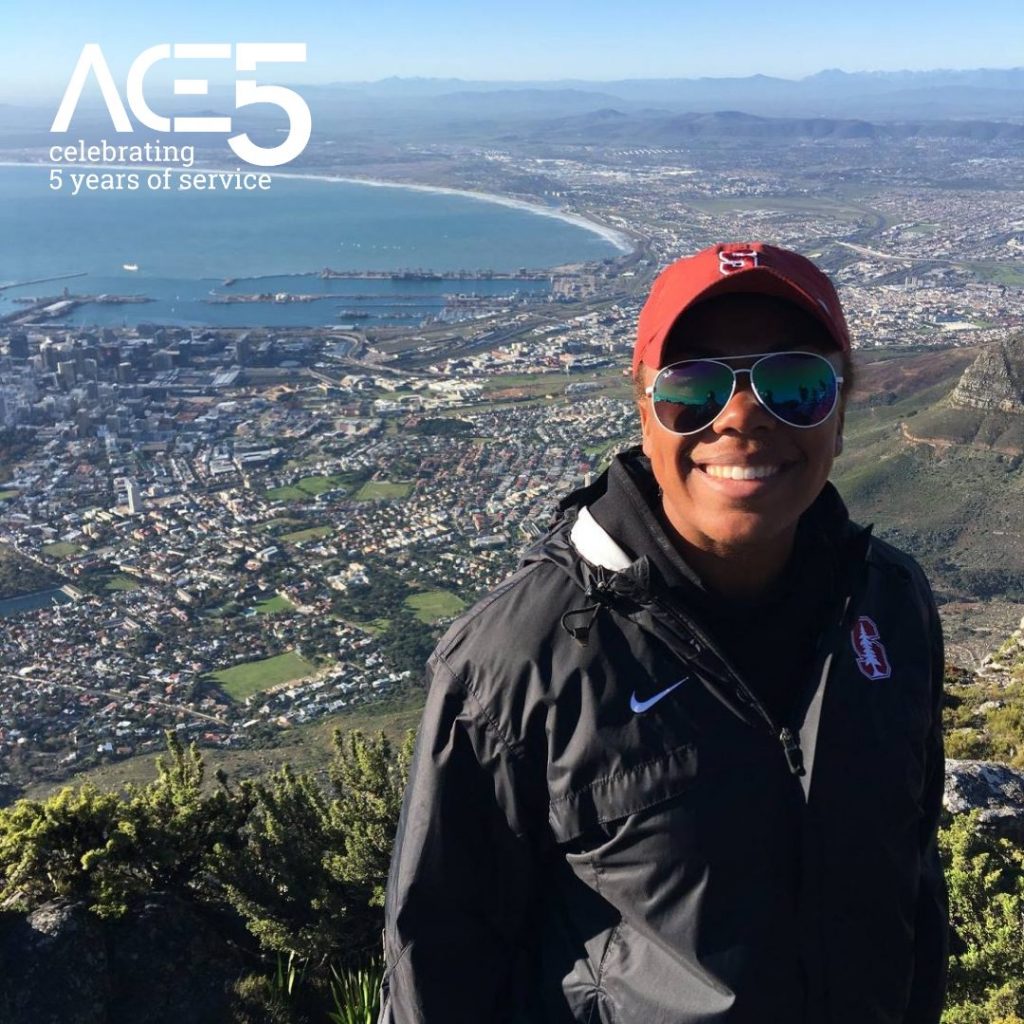
This year marks five years of ACE programming. We’re celebrating by looking back at our first year programs, reflecting with our first year participants on what ACE has meant to them, and learning what our ACE alums are up to now.
This week we interviewed Class of 2018 Stanford graduate, Women’s Soccer team member and ACE in South Africa ’16 alum, Mariah Lee. She shares how ACE in South Africa revealed a global need for Black female role models in sports and inspired her to use her own professional platform to advocate on behalf of marginalized communities.
What are you doing now? How did ACE influence your academic or career path?
Post Stanford, I went to the Wake Forest School of Business and completed a Master’s in Management while playing a fifth year on Wake Forest’s women’s soccer team. Now, I am still playing soccer professionally. I was on the roster for my hometown team, OL Reign, during the 2020 NWSL Challenge Cup.
ACE in South Africa showed me the global need for Black female role models in sport and contributed to my desire to advocate for Black men, women, boys, and girls. With OL Reign, I protested for black lives during games by kneeling, and off of the field by wearing Black Lives Matter tee’s and highlighting Manuel Ellis’ name (a Black man who was killed by police in our city, Tacoma, WA).

Additionally, we supported Black owned businesses, donated to organizations committed to anti-racism, and began working with our club to start a scholarship fund for black girls who play soccer. Most recently, I spoke on a panel with the Seattle YMCA on equity and justice with the legendary Tommie Smith.
ACE continues to showcase how people who play sports are more than just athletes, and I try to live that out everyday by using my platform to advocate for those who are marginalized.
What was the most meaningful part of your ACE experience?
The most meaningful part of my experience in South Africa was playing and interacting with the students everyday. Being a soccer player, I had the most fun during lunch when we played soccer in the courtyard. It started out being 20 or so little boys and me, the sole girl playing.
“ACE in South Africa showed me the global need for Black female role models in sport and contributed to my desire to advocate for Black men, women, boys, and girls.”
But by the end of my time at the school a handful of girls joined in on our game! That experience showed me how powerful role models are, and how one person breaking a barrier can usher in a whole wave of others.
Share a a lesson you learned from your ACE experience that still holds true today
My time in South Africa really showed me how interconnected the struggles Black Americans and Black South Africans face are. Things like colorism, eurocentric standards of beauty, and gender roles are global issues that especially affect the confidence, self-worth, and aspirations of young black girls.
“ACE continues to showcase how people who play sports are more than just athletes, and I try to live that out everyday by using my platform to advocate for those who are marginalized.”
I remember asking the kids what they wanted to do when they grow up. The boys said things like, president, athlete, and doctor, and the only careers the girls mentioned were nursing, teaching, and social work. That was one of the many instances that highlighted the continued need for black, female role models broadly; and on a personal level, deepened my commitment to mentoring, advocating, and helping our youth.
Describe your ACE experience in as few words as possible.
Inspiring, eye-opening, impactful
What’s one thing you want people to know about ACE?
An experience like this is truly unique and the memories will last a lifetime!
What’s your hope for the ACE program and advice for future participants as we look ahead to the next five years?
Do your homework! The experience is so much more impactful if you read up on the history, culture, and practices of the people prior to your trip.
